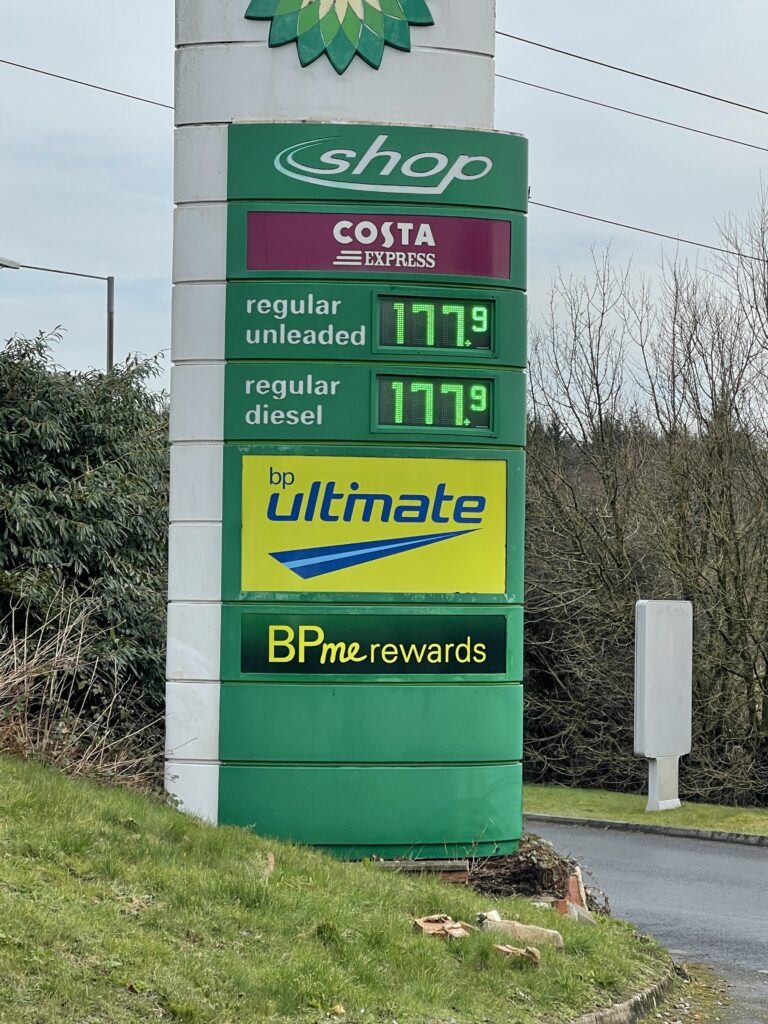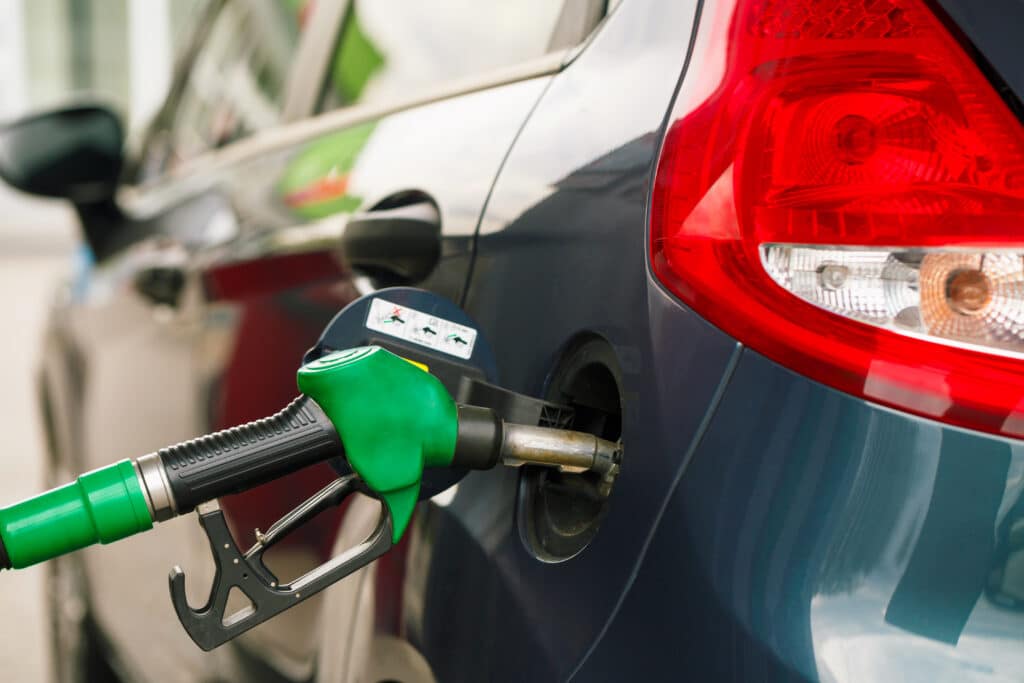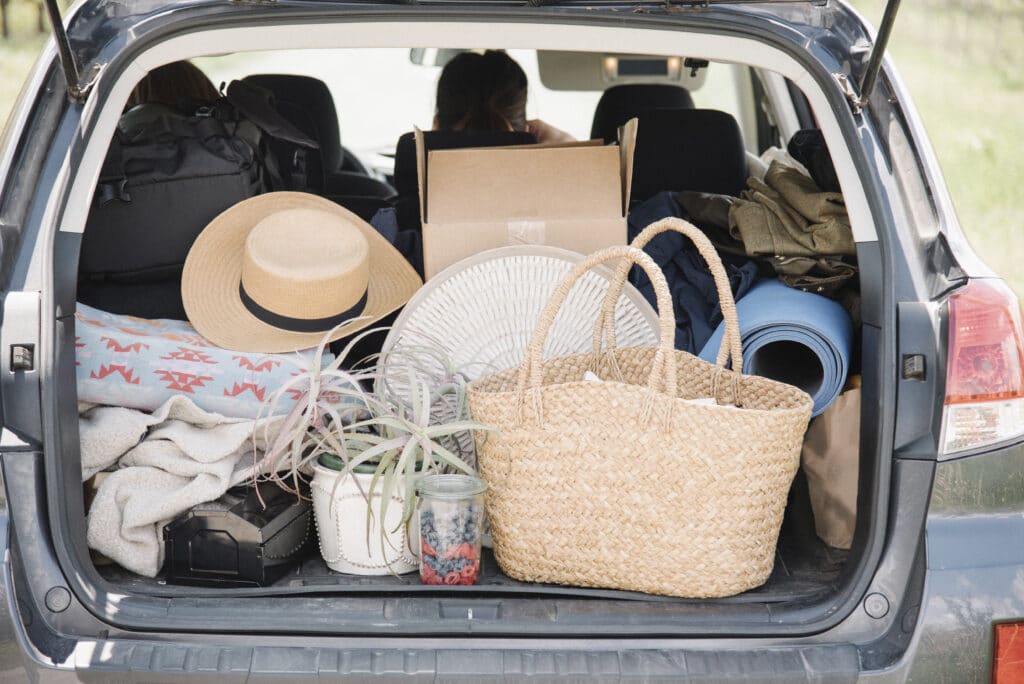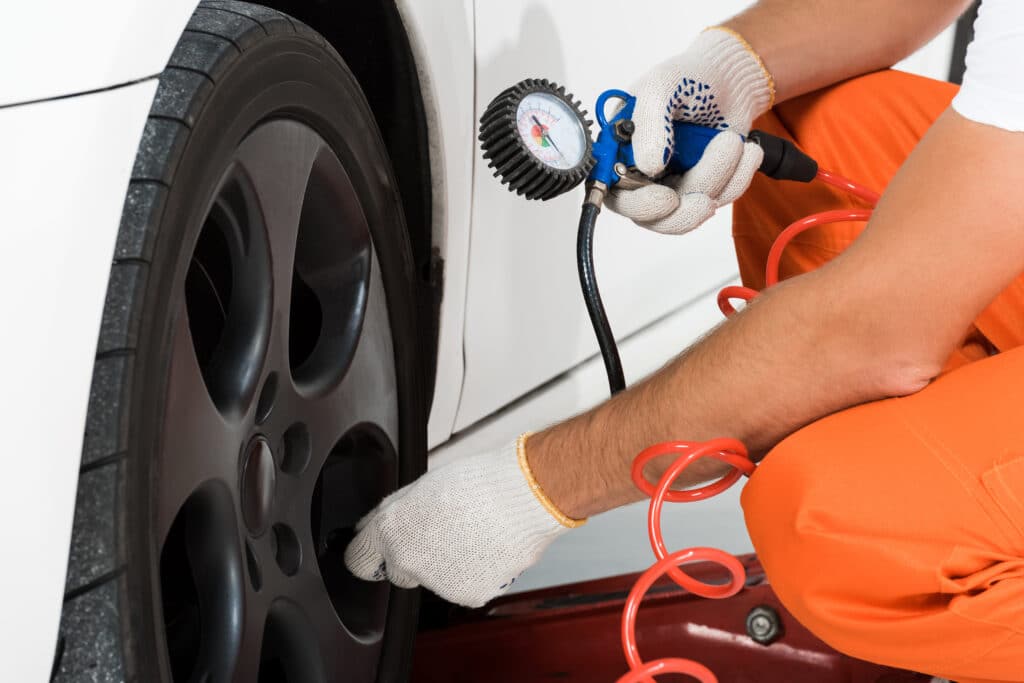Exactly 12 months ago we wrote these words ‘fuel prices have dropped to a four-year low due to the coronavirus pandemic’, and now we are facing the most expensive fuel prices we have ever seen. So, the South Wales Life team have come up with a few simple ways to help save fuel, and money.
We want to share this picture we took only last week on our way to Milford Waterfront – we kid you not, £1.77 a litre.

It is still possible to maximise your fuel savings by simply doing your research, taking care of your car and adapting your driving style.
Buying the cheapest petrol and diesel is the easiest way to cut your fuel costs (if you can find cheap fuel), but there are other things you can do to get the most mileage out of your tank.
According to the AA, automatics use 10% to 15% more fuel than manuals. However, the gap is closing as modern, efficient semi-automatics become more popular. There’s also little difference between automatics and manuals on motorways.
Just to scare the bejeebers out of you, in 1989, the average cost of unleaded petrol was 38.5p per litre and diesel 36.1p per litre. By 2018 the cost per litre was 121.7p and 124.4p respectively – and now!!!

So here are the SOUTH WALES LIFE – top-ten-tips to save on petrol. Go to the bottom of the page to find out how much your car costs to run.
Check Prices Before You Buy
Being prepared is the name of the game when it comes to saving on petrol. Websites such as petrolprices.com can guide you towards the cheapest fuel in your area. There are also apps which will guide you too.
Drive Slowly
The faster you drive the more fuel your car needs. In fact, slowing down from 60mph to 50mph can save up to 15% of your fuel. So leave earlier and take a leisurely drive to work.
Leave the Car at Home
It’s an obvious strategy but a good one. Leave the car at home for those shorter journeys and walk, take a bus or a train and you not only save money on fuel but help the environment too.
Keep Your Car in Good Shape
Keeping your tyres at optimal pressure to save on fuel – under-inflated tyres cause resistance and require more petrol. Oil should be changed once a year or every 7,500 miles in a petrol car or every six months or 6,000 miles in a diesel. Clean oil keeps fuel consumption low.
Don’t Overload
There’s a reason that lorries are so expensive to run. Weight needs more fuel, so lose any excess baggage such as baby buggies or golf clubs when you’re not using them. Likewise, roof boxes, bike racks and roof racks are not only heavy but affect the streamlining of a car, negatively affecting fuel consumption.

Don’t Use Air Conditioning
Unless it’s absolutely necessary abandon your air con in favour of fans or an open window. Using air conditioning can add up to 10% to your fuel consumption, particularly when travelling at lower speeds.
Drive Carefully
The most petrol is used during acceleration and deceleration so drive as steadily as possible, keeping a steady pace and changing speed gradually, leaving slamming on the brakes and pulling away at break-neck speed to the boy racers.
Take Advantage of Supermarket Offers
Supermarkets including Tesco and Sainsburys regularly offer pence off of petrol at their pumps when you buy in their main stores. Do your sums and, if the combined cost of your grocery shopping and discounted petrol adds up to a saving, take advantage of their tactics to keep you on side.
Drive Smooth Roads
In the same way that driving slowly can help to keep your fuel use low, driving on the smoothest possible surfaces also uses far less petrol than gravel, potholes, and bumpy country roads. So when you know your way around choose the tarmac A road over the bumpy country lanes wherever possible.
Look After Your Tyres
Well maintained tyres are essential for safe and economical driving. Check tyre pressures regularly (especially before a motorway journey). The RAC claims correctly inflated tyres can improve fuel consumption by up to 2%.

A good way to compare is to work out how much fuel you use every week. Then, the following week, slow down and see what difference it makes.
To find out just how much your car costs to run, the Money Advice Service have a really good Car Cost Calculator. When we say good, what we really mean is that once again it could scare the bejeebers out of you, it did us. CALCULATOR


